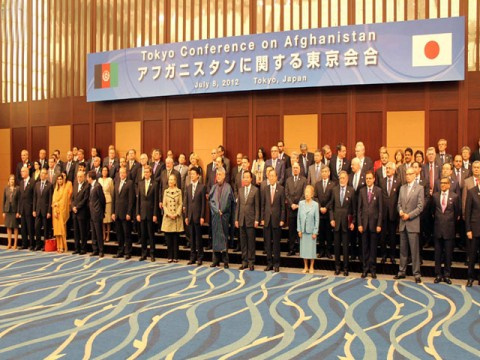The US Wants to Stay in Afghanistan

Mohsen Pakaeen: Yes, as you mentioned, Mrs. Clinton said before her trip to Tokyo that Kabul was a major US ally outside of NATO. Therefore, Afghanistan joins countries like Egypt, Australia, Japan, and Israel on the list of countries that are priorities for defense cooperation with the US. Pakistan, too, had gained this status in 2004. The announcement of Afghanistan as an important non-NATO ally was, however, made based on the strategic agreement that had been signed by the two countries in April-May 2012.
ID: In what ways does Afghanistan become the fifteenth non-NATO US ally benefit the Washington?
MP: We can assess this issue from different angles. First of all, the US' main goal is to prolong their presence in Afghanistan for a long period of time, and with this new announcement, they can use their strategic cooperation with Afghanistan as an excuse to remain there.
Secondly, while maintaining their military presence, the US will be able to manage its foreign aid to Afghanistan for its own interests, as it has done before. It is said that a large part of the 35 billion dollars that has been given to Afghanistan in the past ten years has disappeared because financial and administrative corruption in the country. This is true to some extent, but the truth of the matter is that there is no proof that these 35 billion dollars had truly been given to the Afghan government. In addition, a large part of this sum has been spent on foreign forces present in Afghanistan, especially the US, and on the construction and equipment of military bases. This means that it was not really spent on the development of Afghanistan. Even today, we cannot be sure that the 16 billion dollars that was pledged in Tokyo for aid to Afghanistan will be spent on the Afghan people.
Thirdly, through its alliance with Afghanistan, the US intends to minimize the amount it will have to spend when NATO forces leave Afghanistan and to use aid money to Afghanistan for costs during the transition period. The US needs to have an ally like Afghanistan to be able to maintain its military base in the country and follow its interests in Asia. As a result, the Afghans will benefit less from this alliance, and they will help the US achieve its goals, while paying the costs as well.
ID: The International Afghanistan Conference was held in Tokyo. What were the goals of this conference? How much optimism is there for these goals to be achieved?
MP: The countries present at the Tokyo Conference pledged to give Afghanistan 16 billion dollars. However, certain conditions do exist for the Afghan government to receive this sum, including preparing the country for the return of refugees, combating corruption, and holding fair elections. Considering the points I mentioned earlier, I believe that if these countries fulfill their promise to donate these 16 billion dollars, and if this sum is truly spent on the development of Afghanistan, a bright future can be envisaged for this country. However, if this amount goes towards paying foreign military forces and building and equipping military bases, we will see the same negative trend as before. In reality, if the US controls aid money, there is no hope for improvement. There must be a system for the distribution of financial aids to Afghanistan where the countries involved, including those in the region, can supervise the process to make sure that they are correctly spent on Afghan development.
ID: How active was Iran in this conference?
MP: Due to its common border with Afghanistan and its special role in the region, Iran’s presence in this conference was very important, and our allies, such as Japan, supported Iran’s presence. In reality, the reason for our presence in this international event was Iran’s centrality in the issue of Afghanistan and the commitment to the establishment of peace and security in the region. The Iranian delegation had an effective presence in the main meeting and in the drafting of the conference statement. In drafting the statement, we asked the international community to pay special attention to the issue of Afghan refugees in neighboring countries, and due to Iran’s insistence, the final statement officially asks the international community, especially the Afghan government, to follow through on their commitments to create the necessary atmosphere for the return of refugees. In this statement, Iran and Pakistan were also thanked for hosting these Afghan refugees.
ID: What issues did Iran’s representative, Foreign Minister Salehi, raise in this conference?
MP: In his speech, Dr. Salehi pointed out that the main obstacle for Afghan development is the 10-year presence of foreign forces in Afghanistan, where the establishment of military bases has given way to more terrorism and an increase in drug trafficking and instability in the country. He stated that the Afghan government must use all its social resources to establish peace and stability and ensure the country’s economic development. Iran has fortunately made good on its commitments for the reconstruction of Afghanistan and it will continue to do so.

